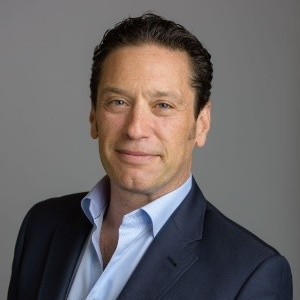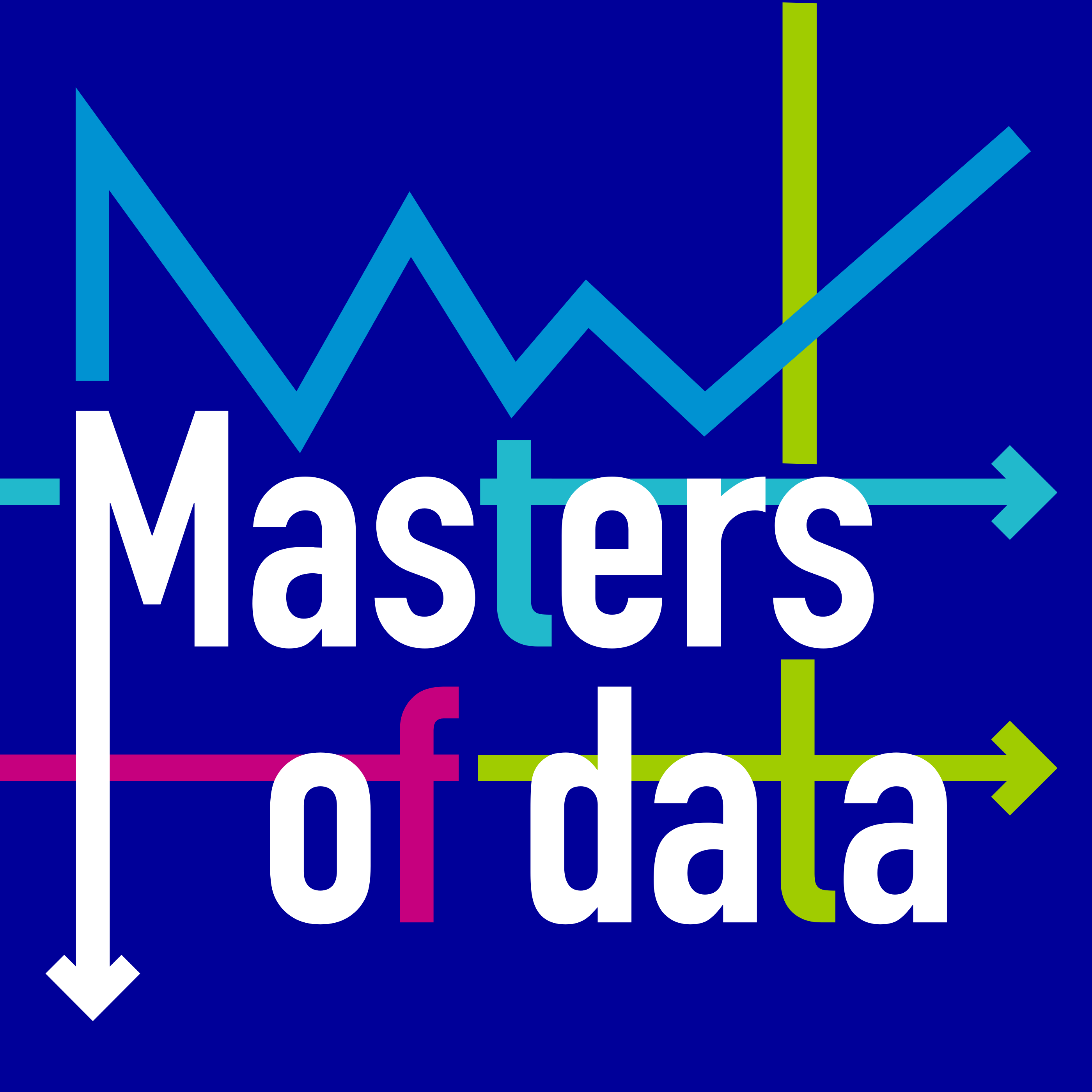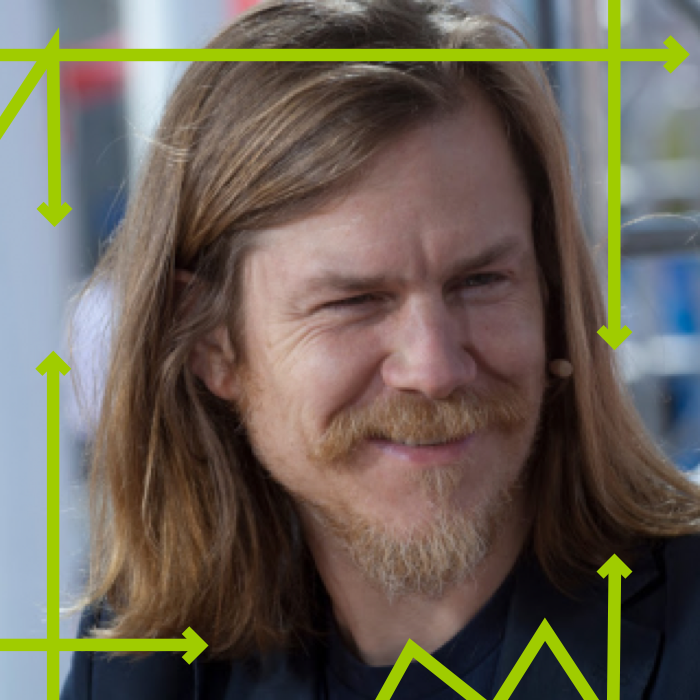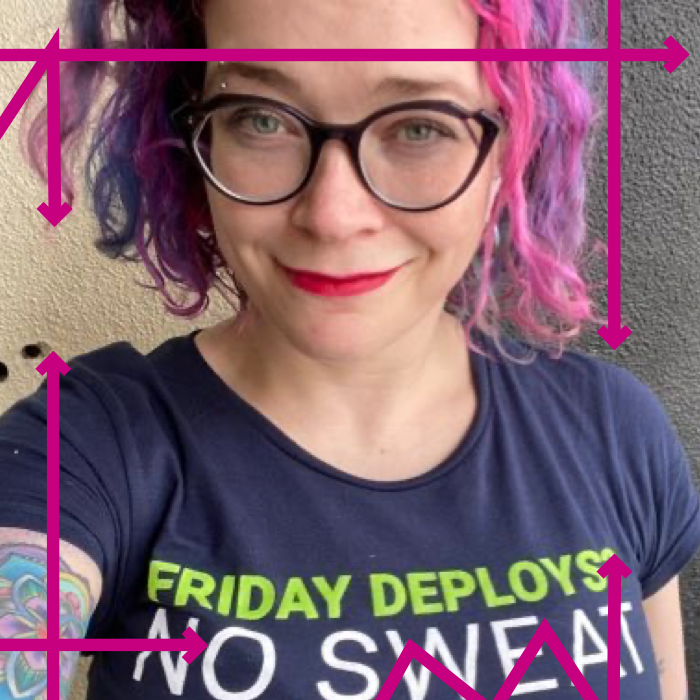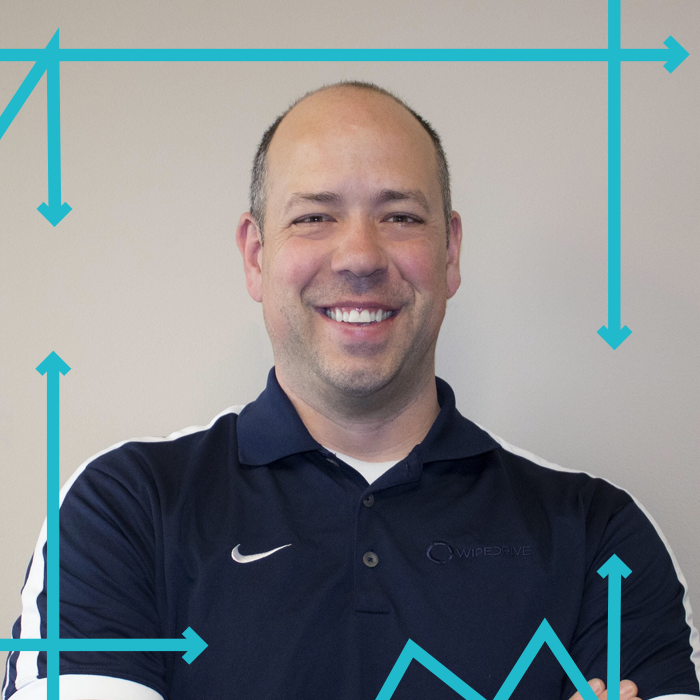The Masters of Data Podcast is back!
- 0.5
- 1
- 1.25
- 1.5
- 1.75
- 2
Dana Torgersen: Hi, folks. Welcome back to the new Masters of Data Podcast. I'm your host, Dana Torgersen. Now my day job, I'm running product marketing for security here at Sumo Logic. But in this role, I get to talk to a great bunch of different folks. We're excited. It's been a couple of years with the pandemic, but now we're back. And we're going to take on a slightly different focus. With my background in security, you can expect that the conversations that I'll be having with CSOs and other leaders and thought leadership across the industry might gravitationally pull towards security. But let's not forget, there is so much stuff with other areas of data that we want to capture. And of course, the public cloud, this cloud, that cloud everybody's cloud cloud. And so, today I am excited in this kickoff for Masters of Data podcast, I've got Aaron Feigin, chief communication officer with Sumo Logic. Just wanted have a conversation with him because he could probably give you folks a little bit clearer details as to what is Masters of Data, what was it leading right up into 2020 when we had to shut the world down here and kept on going. And we've done so much. I know the company, Sumo Logic, Aaron. I mean, you took the company public in 2020 as well. So, there's probably a lot to talk about. But I'll let you speak.
Aaron Feigin: Yeah. Hey, Dana. First off, let me just say I'm so excited that you're taking on this new role. And I can only imagine, you and I get to work together, how busy you are this time of year. And so, taking on and bringing Masters of Data back, it's just awesome, and I couldn't think of anybody else to take the reins of this. So, first off, welcome to you, and thank you for taking this on.
Dana Torgersen: Thank you very much. I appreciate that, Aaron. This is going to be exciting.
Aaron Feigin: Yeah. So, the first thing I just wanted to say is for the folks who have been around for the last probably three or four years, we had this idea at Sumo to have a podcast around just the different orientations around data and data science and the role of data in this cloud- centric world and digital centric world. And the first instantiation of it was really a diverse set of conversations with thought leaders around how they're doing innovative, interesting things with data in this cloud- centric world. And a very diverse set of speakers. And all of them are on the Masters of Data podcast sites. So, you can go back and listen to any of them, industry analysts, scientists, academics, and others. But when we've been talking about what we're going to do next, it's really about how can we focus it into these personas that are really using data to build, run, and secure mission critical modern apps, really the business logic of today, which is business in a digital orientation, and who are those people? So, we've got a little tighter focus on we're going to go next.
Dana Torgersen: Nice. That makes perfect sense. And thanks to this global events, too. We've seen a large shift here, not just within Sumo Logic, I imagine, but orgs across the globe with this migration of their clouds. I mean, nobody wants to go into a data center when who knows who's going to get sick? So, there's been this accelerated effort now to get into the cloud and to migrate their workloads. But all that stuff has to be secured. All that stuff presents new problems, I imagine, for visibility. And that's why I imagine you're talking about the reliability of that data and those apps, right?
Aaron Feigin: Yeah. So, if you think about it in the simplest phrase, and I talk about this a lot with people who are in the technology community but just in large, is COVID came about, a all of a sudden two- and- a- half years ago, every board level discussion was how are we going to serve our customers digitally? So, you almost accelerate 10 years of evolution or transformation in the last two years. If you're a pizza company, if you're a music company, if you're everything in between, healthcare, production, entertainment, you better have a digital way and application to serve those customer bases, because you just need to do that. So, you get 10 years of innovation down in the last two. Then you couple it with everybody who's doing that work is remote, distributed. And they all need new technologies to run and operate and make sure that they can troubleshoot those applications from a distributed nature. And then all of that new technology needs to be secured in a new way. So, you have this massive dramatic shift of every company has to be digital in their centricity. All of these companies are incorporating new technologies to collaborate and engage in the new people and processes that it takes to deliver and secure those. But ultimately, the secure thing is it's all new technology, and the threat vectors for all of that becomes really so important to be looking at in different ways. Because these applications are built in dramatically different ways. They're not monolithic. They're microservices. They're running in the cloud. They have all types of new automation technologies. And all that has created is complexity and risk. So, for the first time in really a while, you get the sense of a business driver of digital transformation dramatically attached to what are the tools for people to drive innovation, and then how are you securing all of that new innovation. Which is why now Masters of Data going forward, my understanding is that you're going to focus a lot more on security and reliability of those mission critical apps, and really the relationship between the two. You almost don't think about those separately now.
Dana Torgersen: Yeah. And the folks that back that up, too, the different teams that really need to be coming together. And we hear that in customer conversations, too, where there's always been the shift left. Now we're starting to hear that some of those folks, it's become a boardroom level decision, invisibility. And as they're making their code more secure, the DevOps folks, and they're going to that DevSecOps nirvana position. That bringing the folks together is tough if you don't have the tools and the platform in place. And so, I know that that's something that also gets into what are folks doing with all this legacy stuff. Because I love how you said, 10 years of innovation shoved into just two years of a timeframe makes it probably quite challenging for some folks.
Aaron Feigin: Well, I think the challenge is... there's a technology challenge. But what I'm finding a lot, and what I hope Master of Data focuses on, is the stories of the people that are taking on the cultural challenges or the process challenges or the people challenges of it. You're not able to build, run, and secure these applications with a siloed orientation. And at every level of the people who are involved, the diversity from a SOC analyst, to a security architect, to an SRE, to a DevOps engineer, to a cloud architect. I mean, they all have all of these tools, and all of these tools have their own inaudible way of looking at data.
Dana Torgersen: Yeah.
Aaron Feigin: And then you've got this complexity across all of it. And one of the things that people are looking for is, talk to us about the best practices and the technologies you've used to encourage the cultural or process model for this new way of operating. And right now, it's a period of Renaissance for all these people. I mean, everybody's, in many ways, doing things dramatically different than they did them five years ago. And I suspect in five years, it'll be as dramatic as that. So, the idea behind the Masters of Data Podcast is, this is going to be a central spot for those diversity of voices to talk about what they're learning along the way, so then all of our boats can rise.
Dana Torgersen: Exactly. I'm anxious to see those and hear those stories as well and share it with the community. And in fact, when you're talking about the workforces coming together, it reminds me of at RSA. I mean, RSA for 2022 this year. It's been two years since there's been a live face- to- face event. So, this is going to be an amazing opportunity to bring folks together under the umbrella, under the theme of transform. And I think they nailed it, didn't they? The idea of transform is so important. And we could talk about it from a security lens. But just in general, even for observability and for folks in their day jobs knowing that they had to transform, what can they do going forward? And one of those aspects that you just touched on is security in the workforce. And there's going to be a CSO panel going on at the Museum of the African Diaspora with CSOs from, I believe, Sumo Logic, Code42, inaudible, and also I think MGM Studios coming together to talk about that exact challenge that folks are facing.
Aaron Feigin: Yeah. I think we all in the industry, we hear the term digital transformation, and we've heard these terms a lot.
Dana Torgersen: Yeah.
Aaron Feigin: But I can't remember an external driver like COVID that has forced such change. I personally was there at VMware years ago when enterprises and midmarket companies and government entities, they made a decision to virtualize first. And I feel that's where we are right now. If you're not thinking about transformation as I need to default to what's the SaaS orientation, what's the new modern orientation, you're just losing time.
Dana Torgersen: Yeah.
Aaron Feigin: Every company needs to be embracing these new technologies to transform their own business, doing it and accelerating faster, and embracing the new. And I think now five, seven years into real robust adoption of cloud, we're seeing that if you're not moving with that orientation to I want to be embracing the new because the new is what's required to solve the amount of threats, you're not going to be where you need to be. And you're going to just fall further and further behind. Because I think everyone can agree, change is accelerating. I mean, just think about all of the things that are coming and happening. So, back to the word transform. It's a rally cry for all of us, but certainly in the security industry. The threats are only getting more intense. The complexity of managing them are only getting more complex. So, we better be using the best technologies possible and sharing everything possible. And that's the beauty of of an event like RSA is the conversations that go on for those four or five days of how are you solving this? How did you look at Log4j? How are you looking at issues around it? And quite frankly, it's a lot of fun, also, just to be back with people.
Dana Torgersen: Oh yeah. I mean, it's like a family reunion of sorts. And I imagine this year's going to be even more so because of the gap that we've had.
Aaron Feigin: Yeah.
Dana Torgersen: And I bet the theme, the topic du jour, is probably going to be not just talking about ransomware, which still persists as a clear and present danger to orgs, but also supply chain attacks, like you mentioned, issues with code like Log4j vulnerabilities that reared its head. And we've just now had this Microsoft Word vulnerability that came up, this zero day. So, going to be a lot to talk about at RSA, and that's going to be awesome.
Aaron Feigin: Yeah. And I think that one of the... our hope for rekindling Masters of Data is so much of what we know as the industry is the threats are getting bigger, the complexity's getting harder, and the experts, there's just not the level of experts or talent in the U. S. or globally to address that.
Dana Torgersen: Oh yeah.
Aaron Feigin: So the question is how does the industry and the experts use technology to offset that? So, the discussions around automation making it easier to solve things faster on the... People are operating with alert fatigue at every level. What's the new technologies that are making it easier for these experts to do their job at a scale that probably they didn't even imagine they'd be doing it at five years ago?
Dana Torgersen: Oh yeah. I mean, you're talking about bad actors that are using machine learning technologies as an AI to hone their craft. And this is the clear and present need that we need to get those technologies in place, orchestrate and automating your security stack, and responding quickly to these incidents. That's all going to be key. If you're not doing that, to your point, in the general terms of cloud migration or digital transformation, you're already behind, and time matters. So, this is really going to be interesting,
Aaron Feigin: And I want to press upon this concept of the security experts that are solving these things are increasingly spending their time horizontally across their industry. I'm sorry, not industry, but also within their companies.
Dana Torgersen: Yeah, different lines of business. Yeah.
Aaron Feigin: Different lines of business. And the role of transformation with an orientation towards collaboration, that's going to be the sweet spot. And so, I really encourage you as you talk to a very diverse set of people that are building, running, securing really modern digital business, that you really pull out from them not just their functional expertise or their functional best practice, but how they're orienting their functional best practice with the other guests that you have in terms of the people that are all involved with that. Because ultimately, technology should be empowering the people who are powering these new digital businesses.
Dana Torgersen: That's a great point, yeah. Making sure that our friends and colleagues and brothers and sisters across the aisle, that they're all working together in a cohesive manner. Because every line of business, every organizational product team that wants to go and build out their product and their modern digital app, cloud native app, the security team is still on the hook to secure all that stuff and all those changes. So, it behooves them to actually get partnering with all those different groups.
Aaron Feigin: Yeah. And I think I'll just leave you with as I listen to your podcast over the next year or two, I'm going to be looking and hoping that you're able to really uncover what's that expertise, but what's that expertise within the context of the community that really is responsible for accelerating this transformation and securing this new world?
Dana Torgersen: Exactly, yeah. I'm excited, too.
Aaron Feigin: Cool.
Dana Torgersen: Gosh. Again, Aaron, thank you again for joining us today. Aaron Feigin, chief communication officer with Sumo Logic, folks. Again, thank you. We're excited for this new Masters of Data Podcast reboot.
Aaron Feigin: Great. Well, good luck to you, Dana.
Dana Torgersen: Thank you so much, Aaron. Have a good day.
Aaron Feigin: Bye. Be well.
DESCRIPTION
Masters of Data is back! We have a new host and a new mission. On today's episode Sumo Logic's Chief Communication Officer, Aaron Feign, speaks with Dana Torgersen about goals for the podcast.
Highlights of the conversation include:
- Talking about bringing back Masters of Data
- Challenges the podcast wants to address
- Transformation and accelerating the adoption of technologies to battle disruptions like COVID
- Alert fatigue and new technologies solving problems in security
- Thinking horizontally across different lines of an organization's business
Today's Host
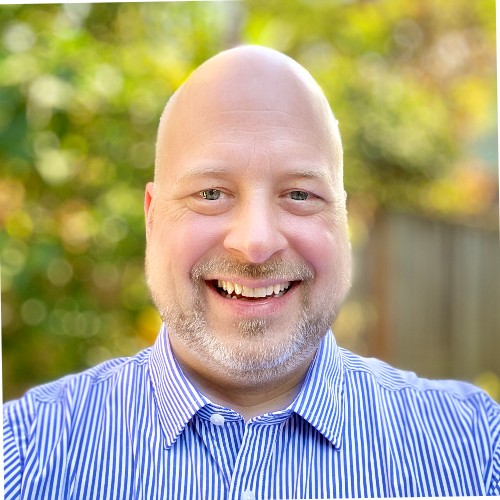
Dana Torgersen
Today's Guests
